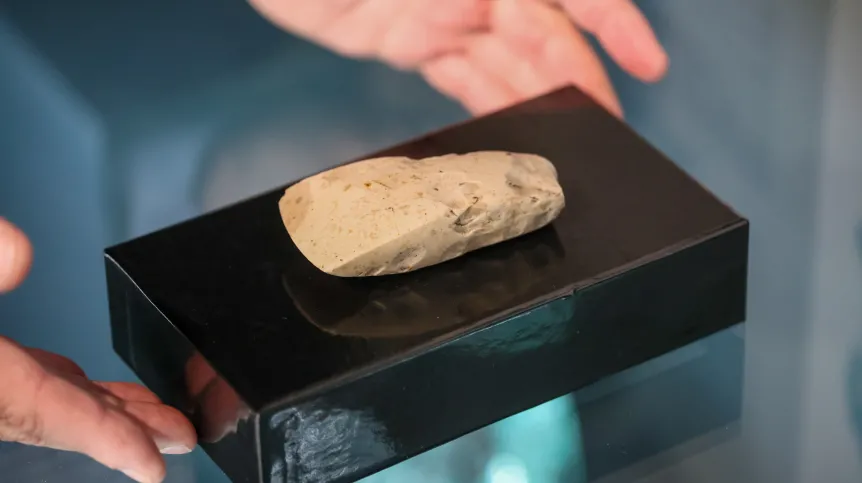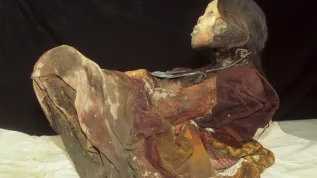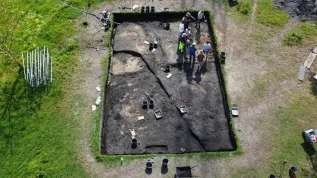
A Neolithic axe found accidentally during garden work in Józefów near Legionowo was probably made in the area of present-day Belarus. It has been donated to the Historical Museum in Legionowo, where it will be on display from September.
'This is a low area and soil had to be brought there. This axe was found in that soil, so it probably originated from a different area. We do not know exactly from which town this soil was brought, but I suspect it was a nearby area. We hope that we will be able to find out the source of this soil that ended up in Józefów', head of the archaeological department of the Legionowo Museum Wawrzyniec Orliński told PAP.
He added that the people who found it reported the discovery to the Masovian Provincial Conservator of Monuments.
The conservator reported the discovery on social media and the Legionowo Historical Museum decided to take care of it. The axe physically arrived at the museum at the beginning of June and was officially handed over at the beginning of July.
'The axe is made of polished flint. That is why we can preliminarily date it to the Neolithic period, or New Stone Age, once called the Polished Stone Age. It is small, about 10 centimetres, but its stylistic features allow it to be associated with the Corded Ware culture', the curator said.
The Corded Ware culture covered mainly Central and Eastern Europe - from the Rhine to the central Volga, Scandinavia from the north and the foothills of the Alps and the Carpathians from the south.
'Interestingly, there are relatively few monuments from the Masovia region that can be associated with this culture, which is why this is an even more valuable find for us and a very important impulse for further research on this period', Orliński said.
The Corded Ware culture is one of the first cultures that can be associated with Indo-European peoples. A characteristic feature of this culture is pottery decorated with cord prints. It was once called the battle axe culture because very characteristic axes with blades extended downwards were found in graves.
'The most relics from this period are found in Silesia, Kuyavia and, interestingly, the areas east of Masovia - today's northern Ukraine and Belarus. In the areas of today's Belarus, around the Ros River in the vicinity of Novoye Selo, there were flint mines known to have had operated in the Neolithic. Our axe was probably made of chalk flint mined there, and from there it came to Masovia', Orliński said.
He added that this still needed to be confirmed and the axe had to be subjected to specialist tests, which would determine the exact place of origin of the raw material.
The axe will be included in the exhibition 'De Profundis… Archaeology of the lands of the Legionowo district', which concerns the past of the area of today's Legionowo district - the fork of the Vistula and Narew rivers. It will be placed in one of the display cases concerning the Neolithic and the history of settlement in this area. It will be on display after the summer holidays, most likely in September.
Admission to the Historical Museum in Legionowo is free. (PAP)
Marta Stańczyk
mas/ dki/ kap/
tr. RL













